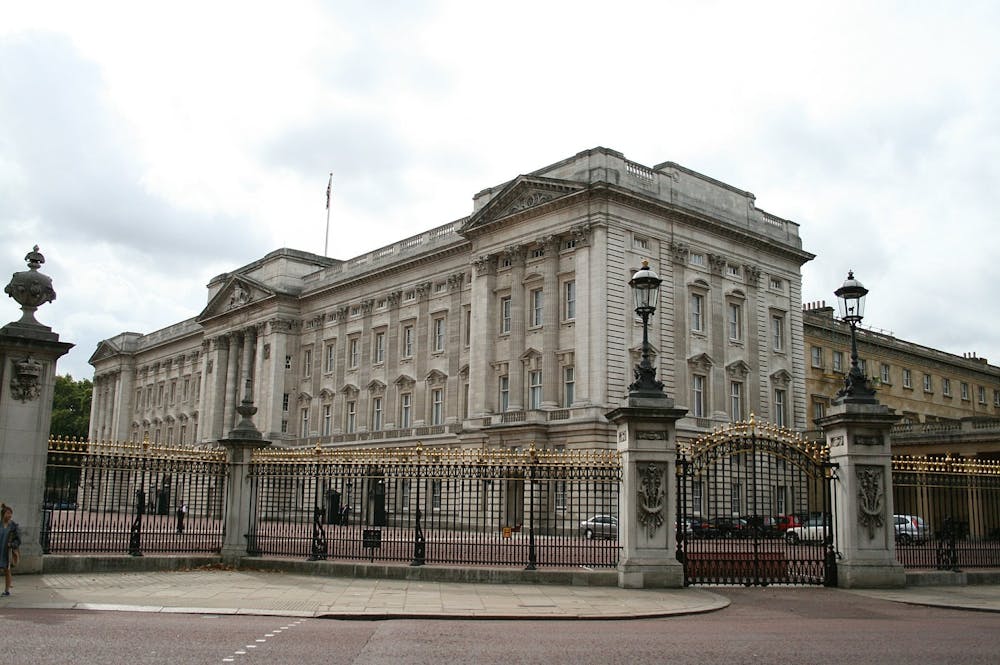Amidst the frenzied midterm season, we have all borne witness to an arguably even more chaotic affair: the catastrophic fallout of Oprah Winfrey’s interview with Meghan Markle and Prince Harry, the Duchess and Duke of Sussex. Many of us have been tracking live updates of the story from The New York Times, but Meghan’s story is not a new one. We have heard this before: The Royal Family inflicting havoc upon “outsiders” who dare to challenge its generational traditions and uncompromising “values.” For Princess Diana, Prince Charles’ first wife and Prince Harry’s mother, her presence challenged a patriarchy hellbent on keeping women seen but never heard. For Meghan, her presence posed a threat to the white supremacy and colonialism inherent to the Crown.
Hence, Meghan and Harry have unveiled a story with which many of us are familiar. It is this familiarity of their experience that resonates with listeners and readers globally: We understand the devastation they are facing because we have already seen how the consequences of the Crown wreak havoc on the lives of “outsiders,” as was the case with Princess Diana.
And yet, I cannot be bothered to pity either Meghan and Harry or Princess Diana. There is a certain point throughout all this chaos at which we need to stop and ask the question: What were they expecting? Were they expecting a system designed to destroy, dehumanize, and exploit Black and brown bodies to suddenly evolve? The reality is that there is no rectifying an inherently unjust system.
Even after asking that question, we must also continue to ask: Why would you want such a system to evolve, given that its evolution is dependent upon its continued existence? In a society where the Queen remains a figurehead over past colonies like Jamaica, New Zealand, India, and The Bahamas, and still holds countries such as the Cayman Islands as colonies, we need to examine whether the Crown is an institution which even deserves the courtesy of reformation.
Given that this colonial legacy of the British Monarchy is an unassailable fact, it is essential to acknowledge that the white supremacy and colonialism inherent in the monarchy were never a deal breaker for Princess Diana or Meghan Markle. In fact, when Princess Diana married Prince Charles in 1981, Belize would only gain independence from the British two months later, and Saint Kitts and Nevis would only gain its independence two years later in 1983.
Even though Princess Diana is constantly praised for having donated her money and services to causes which disproportionately affect Black and brown populations, the reality is that we really witnessed a white savior complex. Indeed, the very need for her charity work could be primarily attributed to the fact that the British Monarchy devastated these countries. That was an institution she existed in for 15 years, and despite how obviously harmful the Monarchy was for Diana, her incentive for leaving was never due to the Crown’s exploitation and degradation of the Black and brown bodies she would later serve as “The People’s Princess,” but rather for self preservation.
Similarly, Meghan’s marriage into the Crown is in itself an indication that the Crown’s history and present is not a deal-breaker for her, and we can understand why: In the countries colonized by the British Monarchy, Meghan is light enough to “pass” as white. However, the abuse inflicted on her by the Crown is indicative of the fact that nothing other than whiteness “passes” for white in the British Monarchy.
Regardless of whether or not Meghan believed she could either force the Crown to undergo reform or that she had to withstand the abuse due to her love for Harry, the reality is not only that there is no reforming an unjust system (especially when that system continues to inflict an irrevocable trauma upon its subjects), but also that love is not enough.
Although I can imagine how awful this may be for Meghan and Harry, given the love they hold for each other, love is never worth becoming complicit in a system which continues to destroy innumerable lives.
Hence, while the entire situation Harry and Meghan face is truly tragic, what is even more tragic is the relentlessness of the institution of the British Monarchy in upholding fundamentally unjust systems and values, as well as Meghan’s initial willingness to belong to such an institution.
As I highlighted in an earlier column about the implications of Netflix’s “The Crown,” there are several examples of how our own institution, like the British monarchical system, upholds injustice. Even in the time between when that column was published and now, more evidence of this reality has come to light in the form of the allegations against Joshua Katz and what I would call the University’s non-response. As Amna Amin and Aisha Tahir argued in a recent column, the University’s response (or lack thereof) is indicative of a larger systemic failure. Princeton's unwillingness to address both its legacy of racism as well as Katz’ alleged inappropriate conduct equates to their protection of white supremacy and its close companion, the patriarchy.
So, if there’s anything else we should be taking away from the violence inflicted on Harry and Meghan by the Crown, it’s that, once again, there is no reforming inherently unjust systems, including the ones Princeton aims to protect. They must instead be abolished.

Kristal Grant is a first-year from Kingston, Jamaica. She can be reached at khgrant@princeton.edu.








